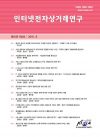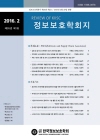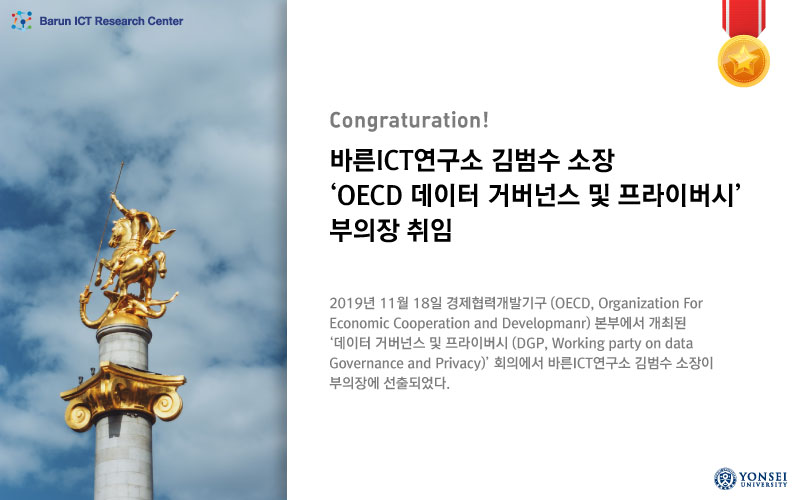[초록] 인터넷과 모바일 사용이 일상화되고 활용 범위가 넓어지면서 어디서나 온라인에 접속해 일을 처리하고 결정을 내리는 속도가 매우 빨라지고 있다. 기존 행동실험경제학 연구 분야에서 종속변인은 주로 점수나 상금 같은 수행 결과였으나, IT 발전과 함께 변화하는 시대적 흐름을 고려할 때, 의사결정의 ‘시간’도 온라인에서 중요한 결과변인으로 다룰 필요가 있다. 이 연구는 온라인의 전파성과 익명성에 주목해 돌발적 정서와 사회적 거리라는 심리적 변인이 온라인 지네 게임 속 의사결정 시간에 미치는 영향에 대해 알아보았다. 실험 결과, 게임수행시간은 분노조건에서 짧고, 행복조건에서 긴 경향이 있었다. 또 타인보다 지인과 게임을 할 때 게임수행시간이 더 길었다. 집중에 어려움을 느끼는 사람일수록 게임시간이 짧아졌고, 복잡한 문제를 싫어하는 사람일수록 자기 결정의 이유를 설명하는 데 시간을 짧게 쓰는 것으로 나타났다. 이 연구는 기존 연구에서 주목받지 못했던 의사결정시간을 결과 변인으로 다뤘다는 점에서, 그리고 온라인 의사결정 맥락에서 심리적 변인의 효과를 탐색했다는 점에서 의의가 있다. 후속 연구로 다른 온라인 의사결정 상황이나 심리적 변수들을 고려한 확장 연구들이 가능할 것으로 기대된다.
[Abstract] Given that nowadays things get very fast due to the pervasive use of the Internet and mobile devices, decision-making time can be an important variable in the online economic decisions. Although in experimental and behavioral economics, measures like scores or earnings are usually preferred, this study argues that the time variable can be dealt with as a new decision outcome. Thus, by selecting some psychological factors presumably impactful in the online context (i.e., incidental emotions, psychological distances, and individual’s impulsivity), this study tested their effect on decision time in the online centipede game. As a result, the mean decision time in the game was longer (1) in the happiness condition than in the anger condition and (2) in the friend condition than in the stranger condition. The people with attention difficulties spent a short time in the decision and the people who dislike complex problems spent a short time in explaining their decision. This study can contribute to the field as it used the decision time as the dependent variable and it tested the effect of psychological factors in the context of online decision-making. Future studies can be conducted in other online decision situations or by considering other psychological variables.
[Abstract] Given that nowadays things get very fast due to the pervasive use of the Internet and mobile devices, decision-making time can be an important variable in the online economic decisions. Although in experimental and behavioral economics, measures like scores or earnings are usually preferred, this study argues that the time variable can be dealt with as a new decision outcome. Thus, by selecting some psychological factors presumably impactful in the online context (i.e., incidental emotions, psychological distances, and individual’s impulsivity), this study tested their effect on decision time in the online centipede game. As a result, the mean decision time in the game was longer (1) in the happiness condition than in the anger condition and (2) in the friend condition than in the stranger condition. The people with attention difficulties spent a short time in the decision and the people who dislike complex problems spent a short time in explaining their decision. This study can contribute to the field as it used the decision time as the dependent variable and it tested the effect of psychological factors in the context of online decision-making. Future studies can be conducted in other online decision situations or by considering other psychological variables.






